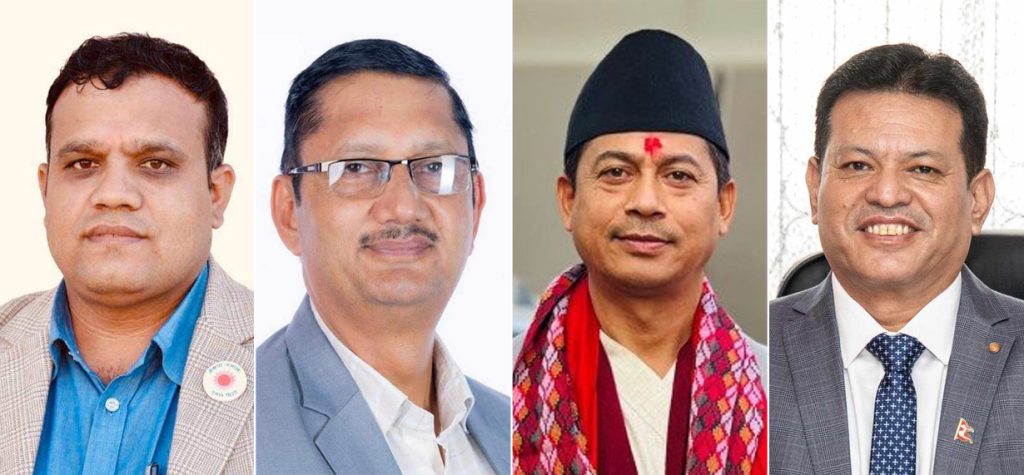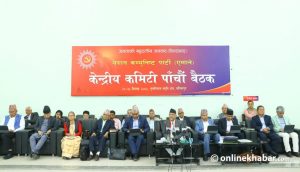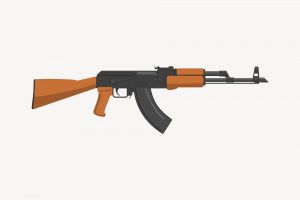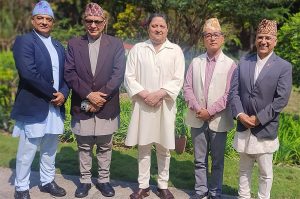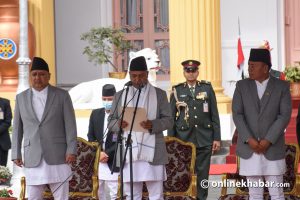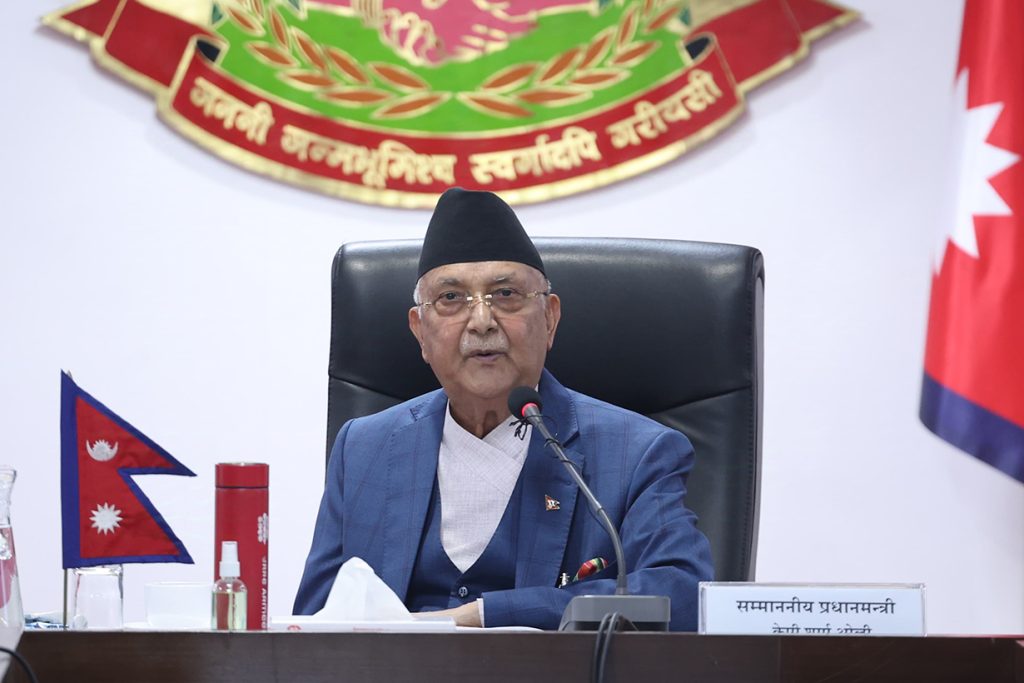
Kathmandu, September 22
As the Central Committee of main opposition CPN-UML begins in Kathmandu today after a gap of nearly one year, the party leadership is reeling under internal and external pressure to review its policy regarding partnership with other parties.
While the party has already begun regretting breaking the alliance with CPN-Maoist Centre, it has been shocked with bad results in the third phase of local level elections though the party emerged as the powerful biggest force in first two phases.
It is not only the Maoists who quit the UML side, but other strong supporters of the party including Kamal Thapa’s Rastriya Prajatantra Party, Narayan Man Bijukchhe’s Nepal Workers and Peasants Party and Chitra Bahadur KC’s Rastriya Janamorcha do not have any sympathy towards the main opposition today.
Thapa is not happy with Oli and accuses the former prime minister of trying to split the RPP by ‘buying its lawmakers’ before the constitution amendment bill was put to vote. Thapa even joined Maoist Chairman Pushpa Kamal Dahal-led Cabinet as a deputy prime minister, which was formed after toppling UML Chairman KP Sharma Oli’s government.
Further, the RPP has concluded that the UML was not faithful in the partnership the two parties had in the first phase of local level elections.
Bijukchhe’s NWPP was not UML’s close ally, but it had supported Oli government from outside the Cabinet. UML’s Yagya Raj Sunuwar and NWPP’s Prem Suwal engaged in a verbal spat during a live TV show recently, which evidently shows the relationship between two parties now.
Janamorcha is unhappy with the party after results of the second phase of local level elections. The UML did not support Janamorcha candidates in Baglung and Pyuthan districts, the strongholds of the party, in the polls, the party claims.
Though Oli had been the target of Madheshi parties for long, the former prime minister perhaps realised his mistake and tried to mend ties with the regional forces in the run-up to the third phase of polls. However, his attempts could not materialise as they responded it was too late.
Now, the UML is on test if it can correct its perspective towards other parties before it becomes too late.




